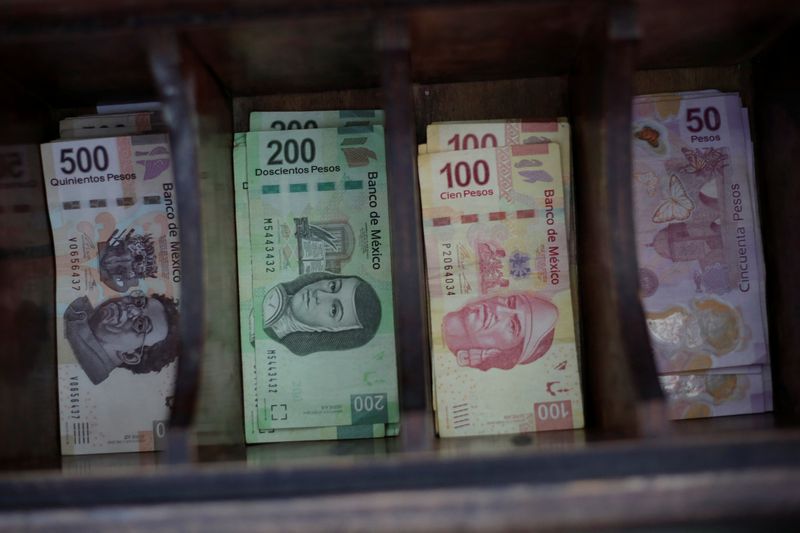By Harry Robertson
LONDON (Reuters) -A sharp drop in Mexico's currency after a landslide election result has shaken foreign exchange markets as far as Hungary and Turkey this week, leaving investors asking whether the unwinding of hugely popular "carry trades" will continue.
A carry trade involves investors borrowing in currencies that have low interest rates, such as the Japanese yen or Swiss franc, and buying higher yielding ones such as the Mexican peso or, recently, the U.S. dollar. It has boomed in popularity as interest rates have diverged around the world and market volatility has stayed low.
Yet the peso's dramatic fall against the yen this week - it dropped 4.4% on Monday in its biggest daily decline since the COVID-19 crisis - is a sign that investors have been rapidly backing out of some of their favourite, and most lucrative, trades.
Pockets of volatility remained on Wednesday, with the yen falling sharply against the dollar, leaving investors to consider whether the old approach is still viable.
"The generalised rise in emerging market FX volatility ... has prompted de-leveraging in carry around the world," said Chris Turner, head of global markets at lender ING. "Where do we go from here?"
ELECTION SHOCKS
The news that Claudia Sheinbaum was set to win by a landslide in Mexico's presidential election caused the peso to tumble, with markets spooked by possible constitutional reforms and impact on the U.S. trade relationship.
India's rupee also stumbled on Tuesday as it became clear that business-friendly Prime Minister Narendra Modi would lose his majority.
The twin drops caused wild swings across emerging markets, knocking other favoured currencies such as Hungary's forint and the Turkish lira. Low-yielding "funding currencies" like the yen and peso rallied, while the euro and dollar bounced around in the ripples.
Volatility is a big threat to carry trades. A rise in the currency in which investors borrow, or a fall in the one in which they invest, can wipe out gains from yield differentials.
"My sense is participants have in large part liquidated these trades and moved to flat," said Neil Jones, a senior FX sales executive at TJM Europe. "The market is likely still holding core long term carry trades, but certainly far reduced from 48 hours prior."
Yet some spy an opportunity. "With the peso-yen cross having fallen 6.3% in two days, we ask if the shakeout has largely played out and if this is a time to re-engage," said Chris Weston, head of research at Pepperstone. "That trade feels aggressive, but let's see how Japanese traders play the yen moves today."
MOVING PARTS
Investors will have to gauge a whole host of factors when deciding whether to return to carry trade strategies. ING's Turner said markets will be keeping a close eye on Sheinbaum's policies and the path of the U.S. dollar, the main driver of global currencies.
"In Mexico, it seems local authorities are already trying to calm investors over possible fiscal concerns," he said. "And internationally, we think the scope for slightly lower U.S. rates and a softer dollar can support the risk environment, lower volatility and limit a further sell-off in the carry trade."

Also of major concern is the yen's likely path. Another factor driving the Japanese currency higher this week has been speculation that the Bank of Japan could raise interest rates in July, with officials warning that they are watching moves in the yen closely.
Intervention remains a threat, after Japanese authorities spent $62 billion propping up the currency around a month ago. A rally in the yen - which has languished at 34-year lows this year - could spell more problems for the carry trade.